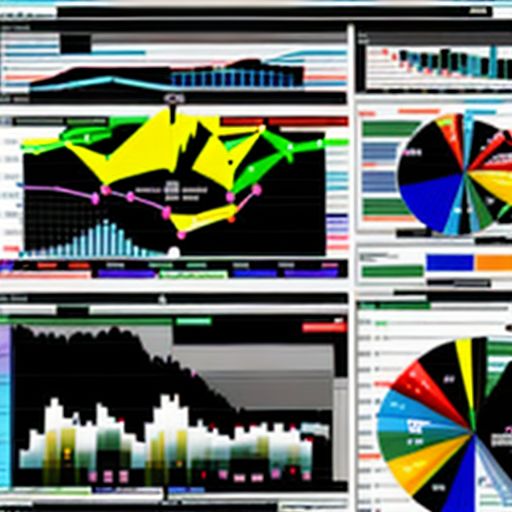In today’s fast-paced and data-driven business landscape, having the right tools can make all the difference. This is especially true when it comes to managing your finances and overall operations. That’s where Accounting And Erp Software come in. Whether you’re a small startup or a large enterprise, understanding these powerful tools can be a game-changer for your efficiency and bottom line.
What are Accounting And Erp Software?
Accounting Software: Your Financial Command Center
Accounting software is designed to streamline and automate core financial tasks. Imagine effortlessly managing your general ledger, accounts payable, accounts receivable, and financial reporting. That’s the power of accounting software. It simplifies these processes, providing you with accurate and timely financial data.
ERP Software: Integrating Business Processes
Enterprise Resource Planning (ERP) software takes a broader approach. Think of it as the central nervous system of your business, connecting different departments and functions under one digital roof. ERP systems typically encompass modules for:
- Financials: Similar features to accounting software but often with more advanced capabilities.
- Supply Chain Management: Track inventory, manage orders, and optimize your supply chain.
- Customer Relationship Management (CRM): Manage customer interactions, track sales, and improve customer satisfaction.
- Human Resources: Manage employee data, payroll, and other HR functions.
- Manufacturing: Plan production, manage resources, and track manufacturing processes.
erp.cungphuthe.com/wp-content/uploads/2024/07/accounting-software-669365.jpg" alt="Accounting Software Dashboard" width="512" height="512">Accounting Software Dashboard
Why are Accounting And Erp Software Important?
Benefits of Accounting Software
- Improved Accuracy: Reduce manual errors and ensure data integrity.
- Time Savings: Automate repetitive tasks and free up valuable time.
- Real-Time Insights: Access up-to-date financial data for informed decision-making.
- Enhanced Collaboration: Facilitate seamless collaboration between finance teams and other departments.
Benefits of ERP Software
- Increased Efficiency: Streamline and automate cross-departmental processes.
- Improved Collaboration: Break down data silos and foster better communication.
- Data-Driven Decisions: Gain a holistic view of your business for more strategic decisions.
- Scalability and Growth: ERP systems can adapt and grow with your business needs.
Frequently Asked Questions about Accounting And Erp Software
Here are some common questions that businesses have about these essential software solutions:
1. What is the difference between accounting software and ERP software?
While there is overlap, accounting software primarily focuses on financial management. In contrast, ERP software encompasses a wider range of business functions, including finance, supply chain, CRM, HR, and more.
2. What are some popular accounting software options?
Popular choices include QuickBooks, Xero, FreshBooks, and Zoho Books.
3. What are some popular ERP software options?
Leading ERP vendors include SAP, Oracle, Microsoft Dynamics 365, and NetSuite.
4. How do I choose the right software for my business?
Consider your business size, industry, specific needs, and budget. Research different options and don’t hesitate to request demos or trials.
Conclusion: Empowering Your Business with the Right Tools
Implementing accounting and ERP software can seem daunting, but the benefits far outweigh the challenges. By investing in these essential tools, you can streamline operations, gain valuable insights, and position your business for sustained success in today’s competitive market. Remember to carefully evaluate your needs and choose solutions that align with your unique business requirements.
